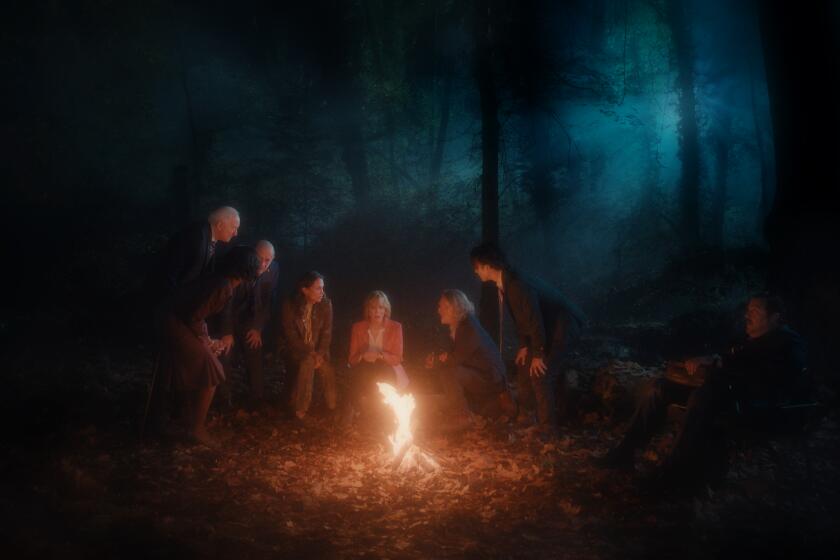Book Review : A Melding of Two Artistic Disciplines
In the Music Library by Allen Hunnicutt (University of Pittsburgh Press, $15.95; 147 pages)
Even without the tip-off title, you’d know these stories were written by a musician. Often narrated by a teacher or performer, set in a studio or classroom, the pieces correspond closely to traditional musical forms, taking their structure from one art and applying it to another. There are nocturnes, concertos, fugues and sonatas; even a suite of dances, all written in a haunting minor key emphasizing Ellen Hunnicutt’s melancholy themes of sorrow and loss.
In the cafeteria at St. Theresa’s College for women, a 50-year-old music teacher, once an eager and promising student at the college, confronts the looming specters of age, solitude, the decline of her physical charms. She wonders if the brisk, efficient and modern nuns she encounters every day can be immune to such thoughts; her feelings toward them vacillating between envy and superiority.
Lately, she has begun to doubt the stability of her marriage, compulsively quizzing her stolid engineer husband about his fantasies, waking up in hysterical panic convinced that he will die suddenly and leave her alone. What after all is death, she asks herself, but “a change in mode from major to minor, a shift in tempo, a variation on a theme?”--a musician attempting to stave off despair by putting the unknown in terms of the familiar context of her profession.
The narrator of “There Is Balm in Gilead” is younger but no merrier. She too is emotionally fragile, just beginning to reassemble her life after a painful divorce. In the coffee shop where she has breakfast, she studies for the graduate record exam as the customers come and go and the waitress’s inane questions form an ironic counterpoint to her misery. The busboy, whose real life is his role as a choir singer, shows her boredom is transcended by a consuming passion.
“All Kinds of Flowers” is a composition for two male and two female voices. The narrator here is Dutch, her guest is the German-born wife of her husband’s employee. The dialogue is the overly deliberate speech of people to whom English is a second language, but there is an added dimension to the speaker’s part--the tension and hostility created by her recollections of wartime incidents. Pouring tea, making forced chit-chat, the memories come unbidden. “In Holland, when butchers dress rabbits, it is their custom to leave one of each animal’s feet intact. This is a courtesy to customers, to assure them they are not buying cats. During the war, some people ate cats.” Her husband tells her Illinois butchers do the same thing, but she knows there’s an difference she’ll never be able to explain.
“Bargaining,” “A Hidden Thing,” “Bringing the News” and “Amos” tackle gloomy subjects--miscarriage, fatal disease, rape, the effect of a wife’s death on a young husband. Preoccupied with the various ways in which people respond to tragedy, Hunnicutt is superb at describing the accommodations her characters make; the slow tentative process by which psychic wounds heal. “Amos,” the young widower in the longest story, seems outwardly to have accepted the finality of the car accident in which his wife died. His work gets done, he manages to talk with friends and colleagues, but meanwhile, he’s becoming increasingly more compulsive; a natural tidiness rapidly turning into a pathological obsession with order. While the other pieces maintain a single melodic line varied only by pace or background harmony, “Amos” builds to a powerful climax followed by a clear resolution, the novella suggesting the potential range of Hunnicutt’s proficiency in melding her two artistic disciplines.
More to Read
The biggest entertainment stories
Get our big stories about Hollywood, film, television, music, arts, culture and more right in your inbox as soon as they publish.
You may occasionally receive promotional content from the Los Angeles Times.










